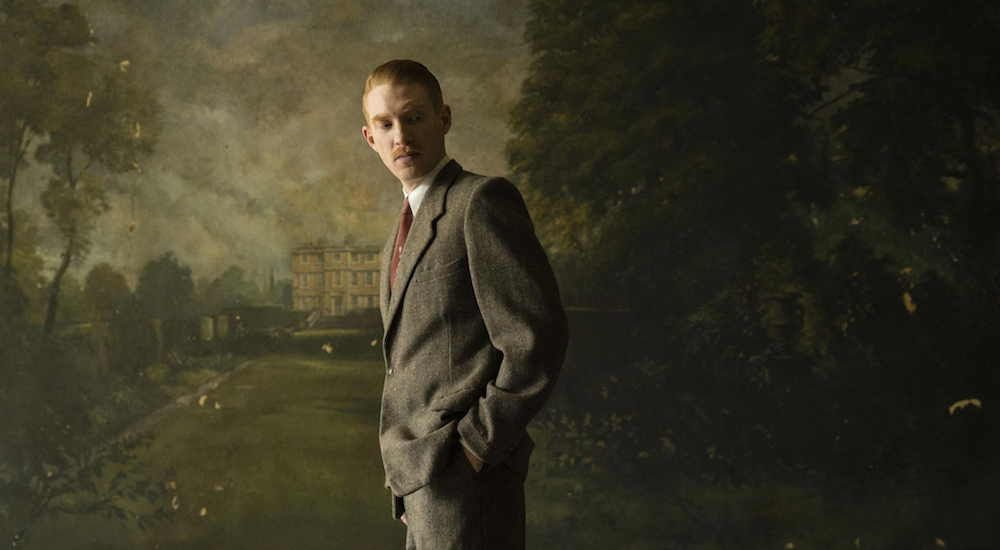You can always count on an old, crumbling English mansion to be scary as heck. The Little Stranger knows that all too well, and is delighted to set you on edge with it.
Like any good Gothic story, The Little Stranger is set in 1940’s post-war England, a time when the country was trying to return to normalcy after the war, and the rise of the working class meant that the landed gentry were forced to watch their world and giant mansions crumble around them.
Our protagonist, country doctor Faraday (Domhnall Gleeson) has returned to his roots, no longer a poor child but an accomplished doctor. In his new role, he connects with the Ayres family, the occupants of the dilapidated old mansion he was in awe of as a child. There’s matriarch Mrs. Ayres (Charlotte Rampling), never quite over the death of her oldest daughter decades ago, the man of the house, Roderick (Will Poulter), grappling with post-war injuries and forced by tradition to take on running the crumbling Ayres empire, and then there’s the intelligent and single Caroline (Ruth Wilson), brought home from the big city by her aging mother and ailing brother, feeling more trapped every day.
It’s easy to see that Faraday can’t see how unhappy the family is. He’s so blinded by his childhood adoration of the house that he only sees what he wants — mainly, that he’s one of the elite insiders now. But it’s clear the Ayres all feel a sense of unease, even the young housekeeper tries to play ill to get out of sleeping there, and Roderick firmly believes there’s a dark energy plaguing them all. What at first seems to be Roderick’s psyche on overdrive, soon begins to reveal itself more conspicuously to the rest of the family, as strange occurrences can no longer be explained away by Roderick’s rantings.
Based on a 2009 novel by Sarah Waters and from the director of Room, The Little Stranger leans away from jump scares, but gets incrementally creepier with each passing minute. The lighting is cold and colors are muted, casting peeling wallpaper and dirty mirrors in tones of gray. Even though the house is big, the setting feel claustrophobic, trapped with their history and (maybe literal) ghosts. Faraday, ever the rational doctor, pushes back against any supernatural explanation, but even he falters in explaining unlocked doors that won’t open or service bells ringing all at once.
So much of these films rely on actors conveying creeping insecurities and incremental breakdowns. Thankfully, Gleeson and Wilson are both masterful at it. Gleeson is cast perfectly as the buttoned-up, proud doctor who begins to unleash flashes of his inner turmoil as the film progresses, while Wilson captures Caroline’s dueling exhaustion at and determination to escape the tight bounds of her situation like a trapped animal.
The Little Strangers isn’t necessarily a traditional horror film, and I wanted its ending to be more mysterious than it was, but its elegant filmmaking and strong performances will certainly keep you on the edge of your seat.

